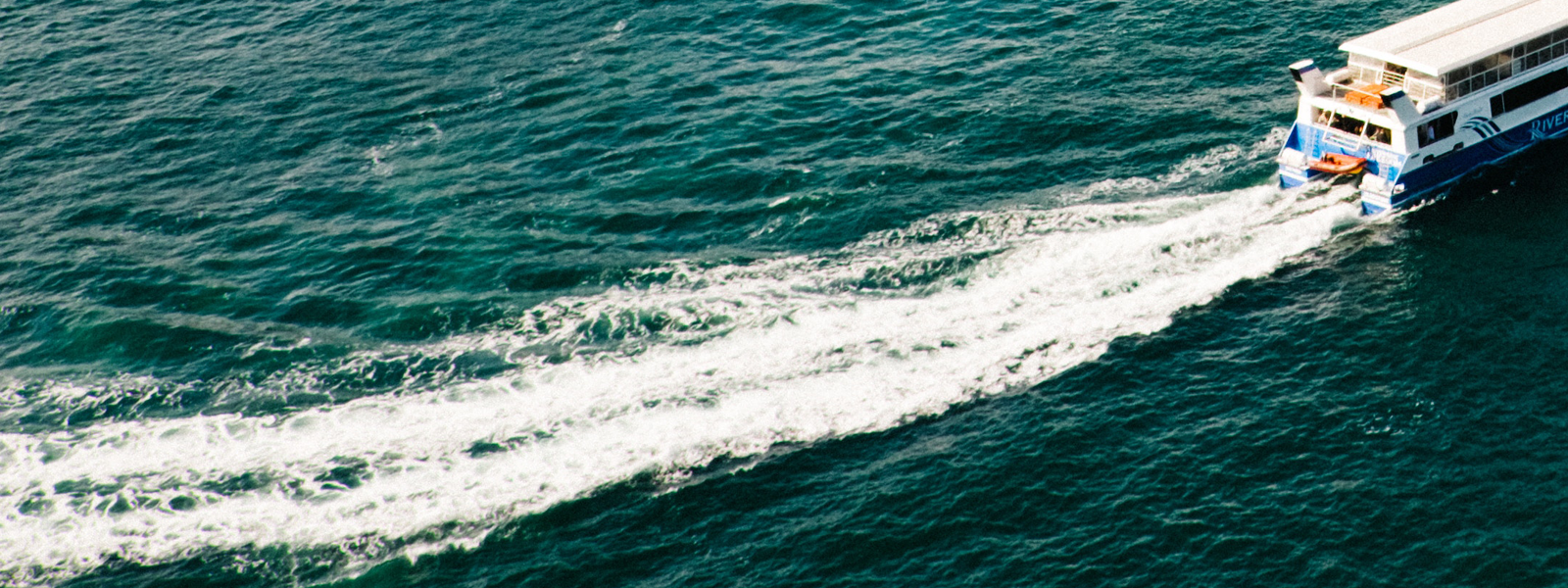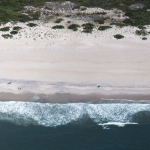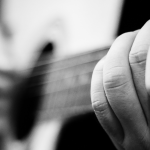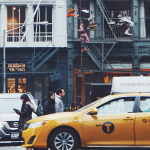It’s the middle of the afternoon, the sun hotter and harder than I’m used to, and Kay and I are aboard the Manly ferry. We separate soon: she wants to stand at the stern and capture the harbour as we leave it, and I want to be as far away from the crush of cameras and people and pointing fingers as possible, so I leave her outside and seek out a seat in the cabin. I instruct my stomach to relax into the bobbing of the current. I bargain with myself to only check the clock at two-minute intervals. I try not to think about water beneath me, beside me, surrounding me.
The choppiness is mercifully brief, but I still do three laps of the upper deck to keep myself busy and move down to the ramp when the wharf is in sight. I don’t need to tell Kay; I know she’ll find me here, that she’ll know I’ll want to get onto blessed, unmoving dry land as soon as possible.
I’m not the only one. A group of tourists is already standing there when I arrive, and three teenaged girls in softball uniforms congregate behind me soon after. A lone woman follows, then a lone man. And then a couple, middle-aged and pale. I can tell as soon as I see them that they’re tourists; I can tell as soon as they open their mouths where they’re from, because they speak like my uncle, consonants clipped and vowels rounded out in unexpected places. They are standing to my right, he in a too-large Akubra, she in a faded baseball cap.
‘I can’t do it,’ I hear her say. It’s a murmur, really, but there is a darkening shadow of panic in her voice that makes my own already-tense stomach twitch in sympathy. ‘I won’t cope.’
The man sighs. ‘You will cope if you decide to cope, and you won’t if you decide you won’t.’ The impatience in his voice curls tight like my fists. ‘It’s all in your head.’
‘I won’t cope,’ she says again, firmer. ‘I can’t help it. I can’t.’
The panic is growing, the shadow bleeding over to where I’m standing, and my heart is beating too quickly, empathy or righteous anger or both.
‘Get a hold of yourself,’ he says. ‘You’re going to ruin the whole holiday with your hysterics.’
It’s none of my business, but his condescension grates, exposes ribbons of open fury on my skin. I want to turn around and tell him what I think of his tone. I want to turn around and tell the woman that I, a stranger, believe her, and she shouldn’t listen to a word he says. That it might all be in her head, but that that doesn’t make it any less valid, or real, or distressing. That she hasn’t done anything wrong.
If I were a character in a book, I think, then it would be different. I would do it. This scene would represent a vital moment of character-building, three-quarters of the way through the story, when the insecure, anxious heroine would overcome her conditioned terror and finally say what she feels, eloquent and correctly punctuated despite a lifetime of awkward pauses and overuse of the not-word “um”. It would be brave and moving, a verbal swell to a major key, the defence of an innocent stranger propelling the protagonist to action in spite of her fear. Everyone would turn and watch, in that story. Everyone would admire the girl for her courage in standing up to a bully, and in reassuring the victim that she isn’t at fault. They might even clap.
But I’m not a character in a book, people in real life don’t clap when you interfere, and no story arc will suffer if I miss my character-building moment; I’ll just catch the next one.
So I clench my fists tighter, I calm my heart, and I keep my mouth shut. When Kay finds me a minute later, smiling, camera in hand, I feel my gratitude for her like a rush of sea air. She’s never given me an ultimatum for getting better. She’s never told me my panic was ruining our holiday even when it was. When I squeeze her hand, she squeezes back. She says, ‘Okay?’
I say, ‘Yes.’
I lose the couple in the rush to get out, two unremarkable blades of grass in an unremarkable field. On the ferry ride back, though, I watch Kay on the deck with her camera, and I think of the woman. I hope she got wherever she was going. I hope she’s all right. I hope she remembered to breathe.
…
Biography
Anna Ascott is an Australian librarian living in a rural German village where the cows outnumber the people. She likes tea, socks, notebooks, and writing short stories and creative non-fiction. Twitter @occasionalanna.
Image: Dan Freeman





